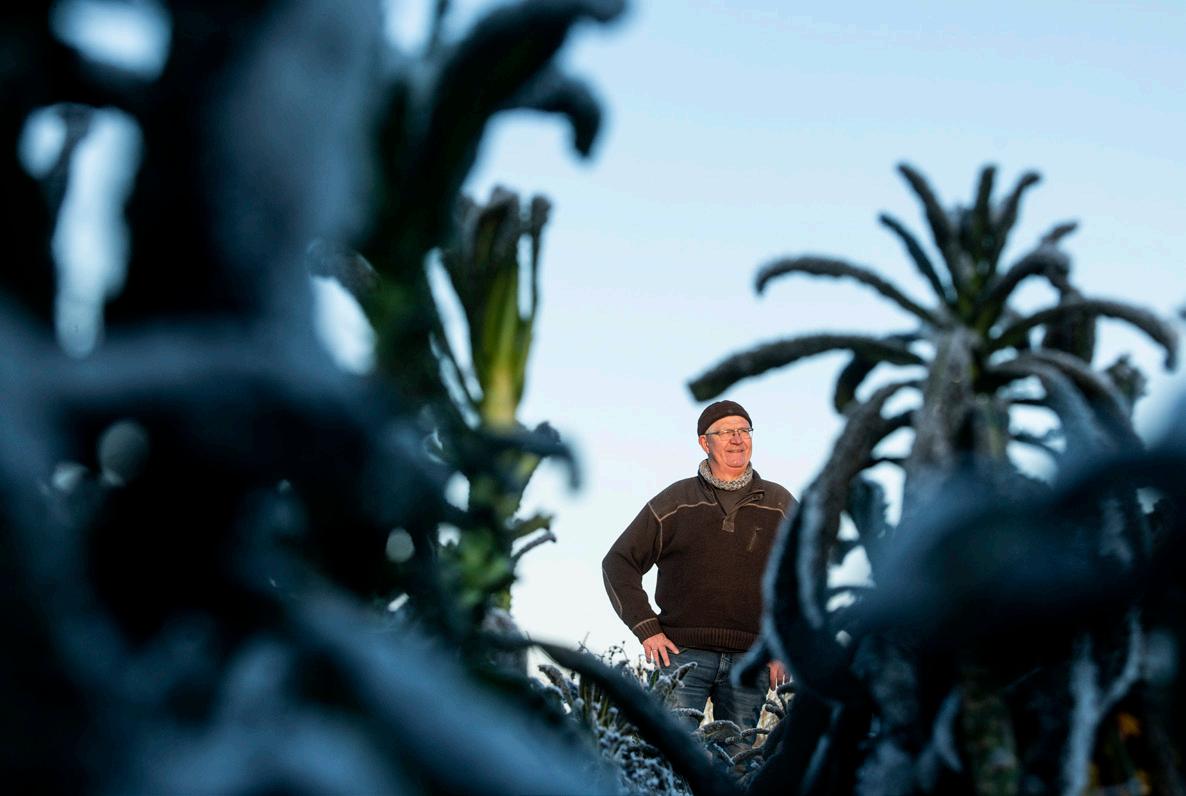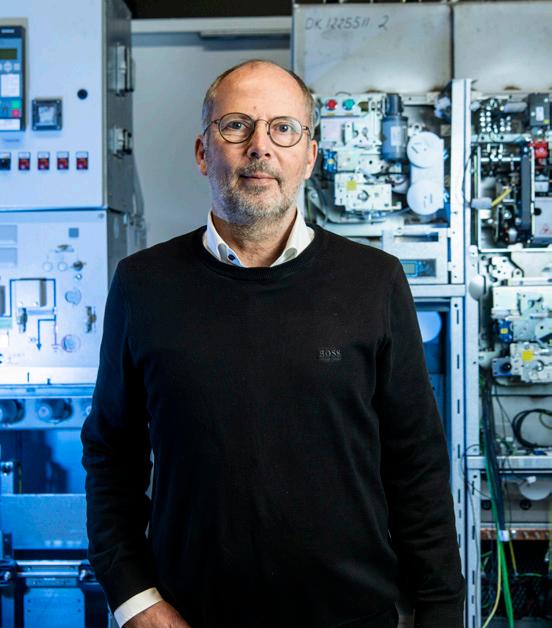
2 minute read
Building with a green conscience
from Vækst Magazine #3
By Anette Jorsal
The construction industry is responsible for 20 per cent of the country’s total carbon emissions – and for 35 per cent of all waste. Globally, construction is responsible for 40 per cent of the world’s carbon emissions. Add to this the fact that the amount of sand used in concrete production means that we will eventually run out of sand. Suppliers and construction companies therefore have every reason to focus attention on sustainability.
Some concentrate on recycling construction materials. Others, including Alfix, focus on reducing the carbon footprint of construction materials. And researchers are looking into alternative materials such as straw and seaweed or sustainable materials such as timber.
According to Professor of Environmental and Resource Economy Jette Bredahl Jacobsen, timber production is typically eco-friendlier than cement production. And we have enough timber. According to Kenny C. Holm from Holdbar, we generally grow more timber than we use.
Sources: Bolius.dk, Dagens Byggeri, Kenny C. Holm

Timber expert from Sjølund calls for more timber construction
Ask timber expert Kenny C. Holm why we need to use more timber in construction, and you will get a prompt reply:
“Because we cannot afford NOT to. Denmark is full of concrete, but cement production emits tons of CO2. We need to reduce that amount, and using more timber in construction is one way to do that,” says Kenny C. Holm, who is the owner of Holdbar, which specialises in making bearing timber more accessible and demonstrating that timber construction can be economically viable.
He draws on his experience as a carpenter and manager in the timber industry when he advises developers and construction companies on timber solutions, i.a. focussing on bearing timber constructions. In 2021, he contributed to the UN17 Village, a large-scale apartment building project, and in 2023, he will contribute to the large timber-based construction of the
Marble Pier in Nordhavn, Copenhagen, designed by Henning Larsen Architects.
He is seeing increasing interest in timber construction among large investors, architects and some construction companies:
“For many years, I have participated in trade fairs, but we never really got down to business. The past two or three years, though, the number of people interested in using timber in construction has soared, and this includes large-scale projects. Of course, this is supported by the general development in society too. Today, pension funds have adopted a sustainable profile, and we have a new set of rules for calculating the carbon footprint of the construction of buildings of more than 1,000 square metres,” says Kenny C. Holm. He also draws on timber experts from his large network which includes Germans and Italians.
Alfix wants to make a difference in a carbon-heavy industry
A large packaging producer shook their head in wonderment when Kolding-based Alfix ordered FSC-certified paper bags. Why pay extra for packaging meant for an industrial product? Because it meets the family-owned company’s values and strategy of making a sustainability-oriented difference in the carbon-heavy construction industry.
Alfix got its FSC-certified bags in 2014. Later the company has added cement and other raw materials with a significantly reduced carbon footprint to its best-selling product. They have also added a dust-inhibiting material that improves the working environment. The tile adhesive, Alfix ProFix Plus, is marked with the Nordic Eco-Label and is the reason why Alfix received the Construction Industry Environmental Award earlier this year – for the second time.
“Since 2000, we have focussed systematically on sustainable initiatives. We want to win and inspire Nordic construction with sustainable systems, and we want to design eco-friendlier products,” says CCO Anders Berthelsen Toft, whose grandfather founded Alfix.
Alfix seeks to impact the value chain from the bottom up, because, as Anders Berthelsen Toft says:
“We can really make a difference if we are able to influence subcontractors.”
Today, Alfix focusses on ESG (Environmental, Social, Governance) standards and actively applies the UN Sustainable Development Goals. Anders Berthelsen Toft is convinced that it has an effect on recruitment at Alfix.









